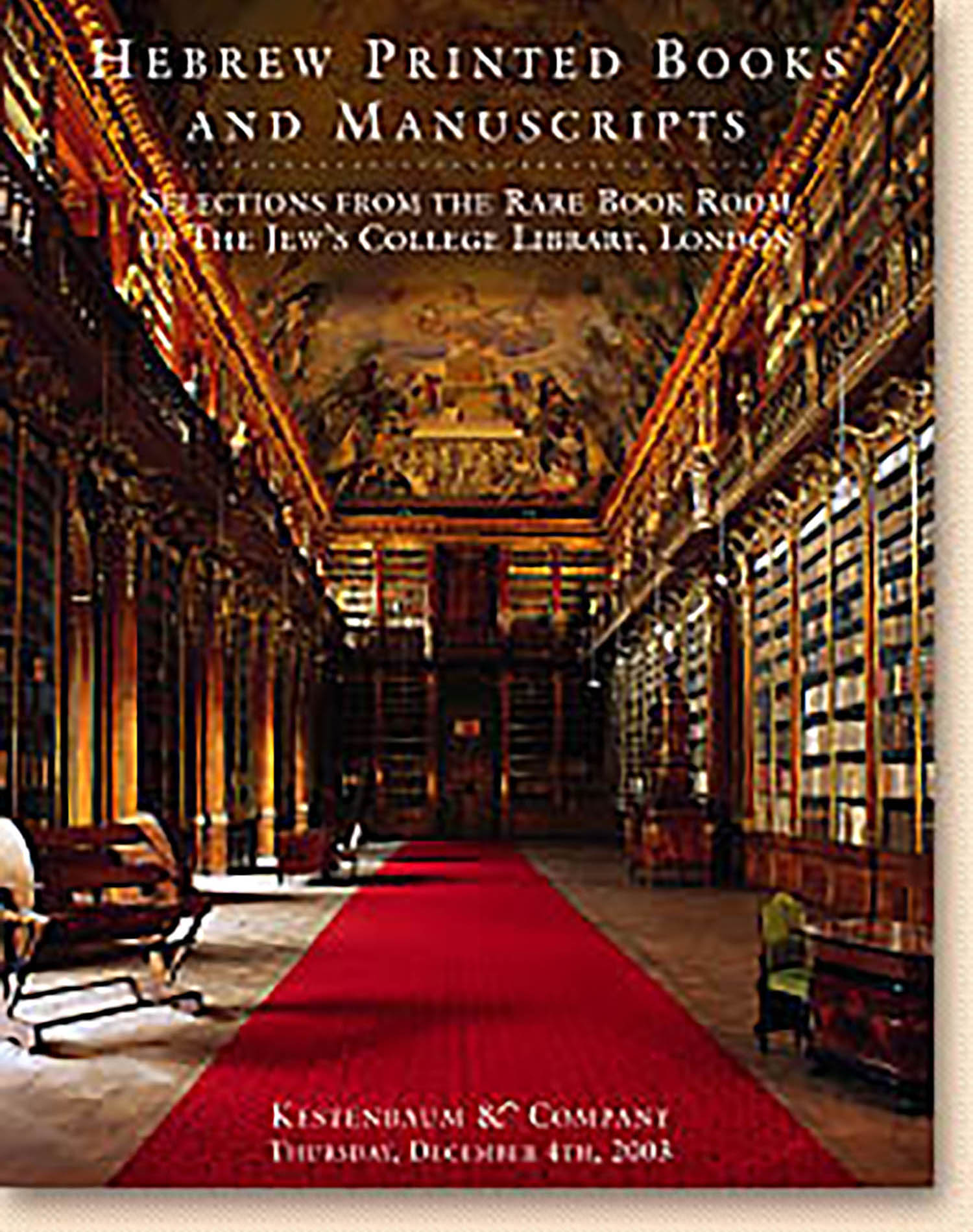Hakohen, Benjamin Beinish ben Judah Leib. Amtachath Binyamin (Seguloth, Refu’oth u-Tefiloth/Charms, Cures, and Prayers)

AUCTION 21 |
Thursday, December 04th,
2003 at 1:00
Kestenbaum & Company Holds Inaugural Auction of Hebrew Printed Books & Manuscripts at Their New Galleries
Lot 130
(KABBALAH)
Hakohen, Benjamin Beinish ben Judah Leib. Amtachath Binyamin (Seguloth, Refu’oth u-Tefiloth/Charms, Cures, and Prayers)
Wilhermsdorf: Hirsch ben Hayim of Fürth 1717
Est: $600 - $900
The author, Benjamin Beinish Hakohen of Krotoschin, acquired a reputation as a ba’al shem, a wonder-worker. In fact, the earlier published work by the same author is entitled Shem Tov Katan (Sulzbach, 1706).
Practical Kabbalah, which was for the most part, virtuously motivated, is preoccupied with the manipulation of the spherical powers to affect the physical, not the spiritual world. Such magical operations are not considered impossible in the Kabbalah. Indeed, they are not categorically forbidden, although numerous Kabbalistic writings stress that only the most perfectly saintly individuals are permitted to perform them, and even then, never for their private advantage, but only in times of emergency and public need. Jewish “white” magic worked largely through the manipulation of the sacred, esoteric names of God and the angels. Those who knew its secrets, were known as “ba’alei shem.”
The book bears the haskamoth (encomia) of R. Meir Eisenstadt of Prossnitz, author of Responsa Panim Me’iroth, and of R. Naphtali Katz of Posen. The latter attests that R. Benjamin Beinish dwelled for some time in his abode, at which time the rabbi of Posen had opportunity to observe his lofty ways and expertise in Kabbalah. As R. Naphtali Katz himself was renowned as a kabbalist and wonder-worker, this constitutes the testimony of an expert. See Immanuel Etkes, Ba’al Hashem: The Besht—Magic, Mysticism, Leadership (Jerusalem, 2000), pp. 35-41.
The owner’s father, Abraham Bing (1752-1841) was an extremely important figure in the Orthodox Jewish community of Germany, famous for his relentless opposition to the Reform movement. Bing was a disciple of the saintly Rabbi Nathan Adler of Frankfurt, Bing’s birthplace. He attained renown as a master talmudist and rosh yeshivah. He served for many years as rabbi of Würzburg. A volume of R. Abraham Bing’s glosses on Shulhan Arukh, Zichron Avraham, was published posthumously (Pressburg, 1892). JE, Vol. III, p. 215
